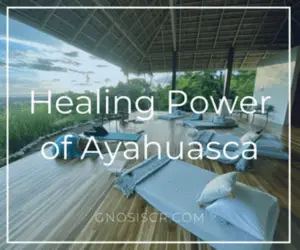The biological clock is damaged and it can affect us especially due to the amount of daily tasks. Personally, I have always given a lot of value to numbers, which provide us with tangible elements and which are very important, for example, what is received in salary periodically and expenses. This leads to the analysis of can I save or simply depend on credit cards?
However, there are statistics that I find controversial and this is the case of the hours of sleep suggested by specialists (psychologists, psychiatrists, doctors, others) and to show a button, or rather the following table:
Stage Recommended/ Hours of sleep per day / Observations
Adolescents (14-17) 10.08 -Some time ago, between 8.5 and 9.5 was recommended
Younger adults (18 to 25) – Between 7-9 hours; not less than 6 and not more than 10-11
Adults (26-64) – Between 7 and 9 hours
Seniors (65 years old) 7-8 hours
General information I question…
Should a teenager be sleeping about 10 hours? Let us try to argue the low probability that this will happen: the study – high school – which usually covers one session (morning or afternoon), could be from 7:00 am to 1:00 pm, we are already going for 6 contact hours; In the case of non-face-to-face activities (tasks) where in pedagogy it is stated that for each face-to-face hour, you must dedicate 2 hours to non-face-to-face, 12 hours are added, which adds up to a total of 18 hours and the day has 24 hours. Then with great difficulty, we have 6 hours left to sleep; not including time to wake up to be punctual at the institute, time lost in front of a cell phone, among others.
If we move on to the next scale, younger adults, I think of a medical student new to college. What is your schedule? From 7:00 am to 6:00 pm, we are mentioning approximately 11 hours (includes snack, lunch, limited interpersonal relationships between class changes and recess) add the study, plus extracurricular activities, travel time to health centers or clinics part of the practical component. It really worries, the figure of the recommended between 7 and 9 hours staggers.
Adults, where although the range is very wide, the intellectual and physical exhaustion from 26 to 50 is not the same as from 51 to 64 and in particular, teachers linked to the imperative need to join in the understanding and putting into practice Technology and Communication (ICT) tools, in addition to accumulated experience and perseverance in updating.
How many hours a day does this imply, especially for those with 20 to 30 years of experience in the life of an educator? Apparently, we usually get up very early, up to 3 hours before arriving at the institution, housework and responsibilities within the family -for both men and women- arrive before class, to give a “review” to schedule; arrive at least 5 minutes prior to the beginning of class, review the projector, slides, Internet connection and let the show begin!; 20 hours of classes a week? Does it mean 3 or 4 hours of preparation, for a 3-hour class or 2 hours and 2 hours a week, for about 4 groups?
I sign up for about 72 hours a week (includes Sunday, 6 days a week) approximately which implies 72/6: 12 hours a day; transfer home (Be careful that it is not to another educational institution or linked to your company, hospital, depending on your professional training doctor-teacher, for example), which would raise the stop from about 15 to 16 hours a day! 24 hours has the day – 16 = 8 left; getting to bed, unlikely since you have to take care of the family, watch some TV… In short, the possibility of seven 7 to 8 hours, borders on the limit of disbelief!
It is true that the biological clock damages us, it can affect us, so a doctor would easily say, but… Do you agree with me or did I fall “short” depending on your age range?


